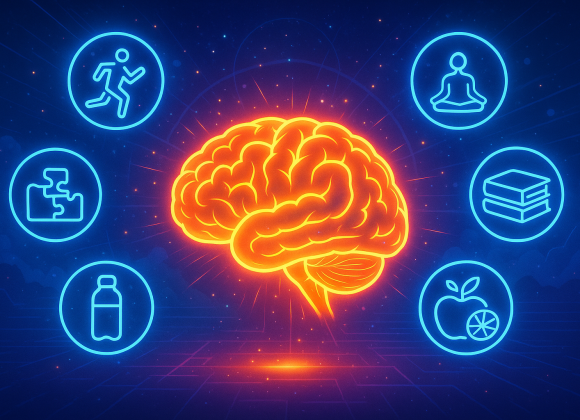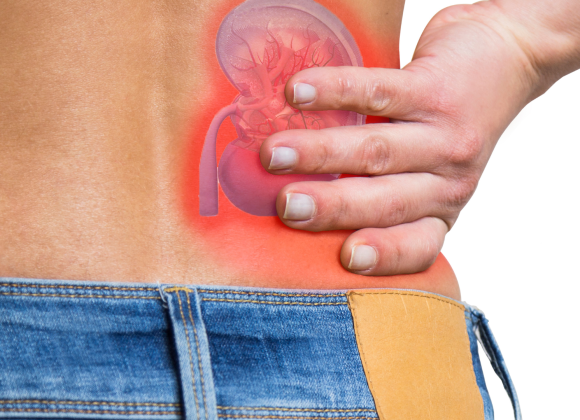Your heart is the engine that keeps your body running, but what happens when it starts sending out distress signals? Heart attacks are often portrayed in movies as dramatic, chest-clutching events, but in reality, the early signs can be subtle and easy to miss. Recognizing these symptoms could mean the difference between life and death.
Did you know that nearly half of all heart attacks are preceded by warning signs hours, days, or even weeks in advance? From unexplained fatigue to a nagging discomfort in your chest, your body might be trying to tell you something important. The problem is, many of these symptoms are brushed off as stress, indigestion, or simply “getting older.”
In this blog, we’ll dive into the early signs and symptoms of a heart attack that everyone should know. Whether you’re a health-conscious individual or someone caring for a loved one, understanding these warning signals could save a life. Let’s uncover the clues your body gives you before a heart attack strikes—because when it comes to your heart, every second counts.
Early signs of a heart attack
A heart attack does not always announce itself with sudden, crushing chest pain. Often, your body sends quiet, early warnings, sometimes weeks or even a month before the event. These subtle signals are easy to overlook, but paying attention to them could be the difference between life and death for you or someone you care about. Here is what to watch for and why it matters:
- Unusual Fatigue: More Than Just Tiredness
Feeling unusually exhausted, even after a good night’s sleep? Extreme fatigue is one of the most common early signs of a heart attack, especially in women. This isn’t your typical end-of-the-day tiredness—it’s a deep, overwhelming exhaustion that makes even simple tasks like walking or climbing stairs feel like a marathon.
- Shortness of Breath: When Breathing Becomes a Struggle
If you find yourself gasping for air during routine activities or while resting, it could be a red flag. Your heart and lungs work closely together, and a struggling heart can’t pump blood efficiently, leaving you breathless. This symptom often appears weeks before a heart attack.

- Chest Discomfort: Not Always Pain
Chest pain is the hallmark of a heart attack, but before the actual event, you might experience milder discomfort. This could feel like pressure, tightness, or a squeezing sensation in your chest. It may come and go, making it easy to dismiss as indigestion or muscle strain.
- Unexplained Aches and Pains
Pain in unexpected places—like your jaw, neck, shoulders, arms, or back—can be an early warning sign. These aches often radiate from the chest and are more common in women. Don’t ignore persistent pain that doesn’t seem to have a clear cause.
- Cold Sweats and Dizziness
Breaking out in a cold sweat or feeling lightheaded for no apparent reason? These symptoms can indicate that your heart isn’t functioning properly. When blood flow is compromised, your body reacts with stress signals like sweating and dizziness.
- Sleep Disturbances: More Than Just Insomnia
Struggling to sleep or waking up frequently at night? Sleep disturbances, especially when paired with other symptoms like anxiety or shortness of breath, can be an early indicator of heart trouble. Your body might be trying to tell you something important.
- Indigestion or Nausea
Persistent stomach issues like nausea, vomiting, or a burning sensation in your chest can sometimes be mistaken for gastrointestinal problems. However, these symptoms can also signal an impending heart attack, particularly in women.
Are warning signs different for women than men?
Heart attack symptoms differ between men and women, making awareness crucial. Men often experience classic signs like intense chest pressure, pain radiating to the arm or jaw, and cold sweats. Women, however, tend to have subtler symptoms, such as extreme fatigue, shortness of breath, nausea, or pain in the back, neck, or jaw, which are often mistaken for less serious issues. These differences can lead to delayed diagnosis, especially for women. Recognizing these gender specific signs and seeking immediate medical help can save lives. Always listen to your body, as it could be signaling something serious.
Risk Factors for Heart Attacks
- Age and Gender: Men over 45 and women over 55 are at higher risk. Women may experience less obvious symptoms, making early detection harder.
- Lifestyle Choices: Smoking, excessive alcohol consumption, and a sedentary lifestyle significantly increase the likelihood of a heart attack.
- Diet: A diet high in processed foods, trans fats, and sugar contributes to obesity, high cholesterol, and diabetes—all of which are major risk factors.
- Chronic Conditions: High blood pressure, high cholesterol, and diabetes put extra strain on the heart and damage blood vessels over time.
- Stress and Mental Health: Chronic stress, anxiety, and depression can elevate blood pressure and heart rate, increasing the risk of cardiovascular issues.
- Family History: A family history of heart disease or heart attacks raises your risk due to genetic predisposition.
When to Seek Medical Attention
If you or someone around you experiences any of the following symptoms, it’s critical to seek emergency medical care without delay:

- Chest pain or pressure: If the pain is severe, lasts more than a few minutes, or feels like a heavy weight on your chest, call emergency services immediately.
- Shortness of breath: Especially if it occurs suddenly and is accompanied by chest discomfort.
- Radiating pain: Pain that spreads to the arms, neck, jaw, or back.
- Cold sweats, nausea, or vomiting: These symptoms, particularly when combined with chest pain, are strong indicators of a heart attack.
- Unexplained fatigue or dizziness: If these symptoms are severe or persistent, they could signal an underlying heart issue.
Why Timely Action is Crucial
A heart attack occurs when blood flow to the heart is blocked, often due to a blood clot. The longer the heart muscle is deprived of oxygen, the greater the damage. Seeking medical care at the earliest signs of a heart attack can:
- Prevent further damage to the heart.
- Increase the chances of survival.
- Reduce the risk of complications like heart failure or arrhythmias.
The Final Word
Heart attacks don’t always strike out of the blue. Your body often sends subtle signals, such as unusual fatigue, shortness of breath, or nagging chest discomfort, weeks before the storm hits. Recognizing these early warnings could be the difference between life and death. Listen to your body, act fast, and don’t brush off the signs. Your heart’s whispers today could save your life tomorrow. Stay alert and stay healthy!




